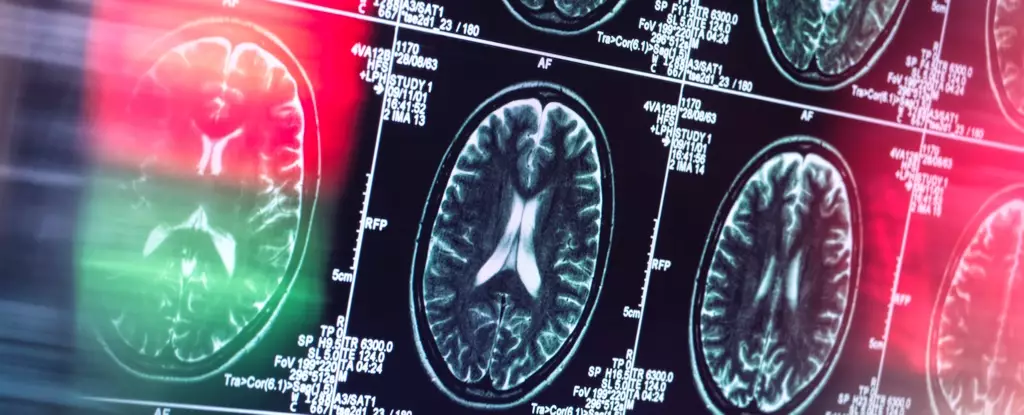The search for an effective treatment for Alzheimer’s disease has become an intensively scrutinized and competitive endeavor. Significant controversies have emerged recently, highlighting the discrepancies between scientific claims and actual findings. Notably, a pivotal study from 2006 published in Nature, which sparked the mainstream focus on beta-amyloid as a potential cause for Alzheimer’s, has come under fire for possible data fabrication. This revelation has raised red flags within the scientific community regarding the integrity of research that underpins our understanding of this debilitating disease.
Compounding the issue, the approval of aducanumab by the US Food and Drug Administration in June 2021 as a treatment for Alzheimer’s was met with mixed reactions. Critiques focus on the inconclusiveness of the data supporting the drug’s efficacy, while advocates argue that any potential treatment should not be overlooked given the millions affected by this ailment. These contrasting opinions signal a larger need to assess not only the treatments being offered but also the foundational research driving the pursuit of a cure.
For more than a decade, scientific efforts have largely fixated on beta-amyloid, aiming to develop treatments that target its formation and reduce its presence in the brain. However, this razor-sharp concentration on a single avenue of inquiry may be limiting progress. By honing in on just one facet of the disease, researchers run the risk of ignoring other critical factors that contribute to Alzheimer’s pathology. Such a narrow approach could be hindering the potential discovery of broader, more effective therapeutic strategies.
Emerging calls for a reevaluation of how Alzheimer’s is conceptualized are gaining traction. Researchers and clinicians must consider alternative hypotheses and broaden their scope to include other contributing elements of the disease. This shift is essential for moving forward in the quest for effective therapies.
At the forefront of this rethinking of Alzheimer’s is the work at institutions like the Krembil Brain Institute, where researchers propose a novel conception of the disease. Rather than viewing Alzheimer’s primarily as a brain disorder, they suggest framing it as an autoimmune condition specifically affecting the brain’s immune system. This perspective posits that beta-amyloid, rather than being an aberrant protein, functions as a naturally occurring element within the brain designed to assist in the body’s immune response.
When examining the mechanisms of the immune system, it becomes evident that when faced with trauma or infection, beta-amyloid plays a protective role. Unfortunately, due to the structural similarities between bacterial membranes and neural cell membranes, this immune response can turn against its host, leading to a protracted assault on brain cells. This misdirected activity aligns with the pathophysiology observed in autoimmune diseases, which opens new considerations on how to approach treatment.
As the dialogue surrounding Alzheimer’s evolves, various alternative theories are beginning to surface. Some researchers argue that impaired mitochondrial function could significantly contribute to the disease. Mitochondria are essential for energy production in brain cells, and dysfunction in these organelles could lead to cognitive decline. Others suggest that the disease might stem from oral bacterial infections, drawing connections between periodontal health and neurodegenerative disorders.
Complicated factors such as the abnormal handling of metals in the brain are also under investigation, indicating that Alzheimer’s could arise from multiple, intersecting biological pathways. Such diverse lines of inquiry represent a much-needed shift toward integrative research that encompasses several potential contributors to the onset and progression of the disease.
Currently, dementia affects over 50 million people worldwide, with new cases emerging at an alarming rate. This reality underscores the vast public health crisis precipitated by Alzheimer’s. The implications are not just personal, affecting families deeply, but also systemic, as healthcare systems grapple with the financial and emotional burden of care.
To tackle this challenge effectively, a multifaceted understanding of Alzheimer’s is critical. Breaking away from an exclusive reliance on beta-amyloid-targeted therapies is necessary to uncover more innovative and effective treatments.
As Alzheimer’s disease continues to wreak havoc on individuals and societies alike, the scientific community must embrace fresh perspectives that could pave the way for significant advancements in treatment and understanding. A collaborative, open-minded approach is essential for moving beyond the current intellectual confines and making strides toward a brighter future for those impacted by Alzheimer’s and their families.


Leave a Reply